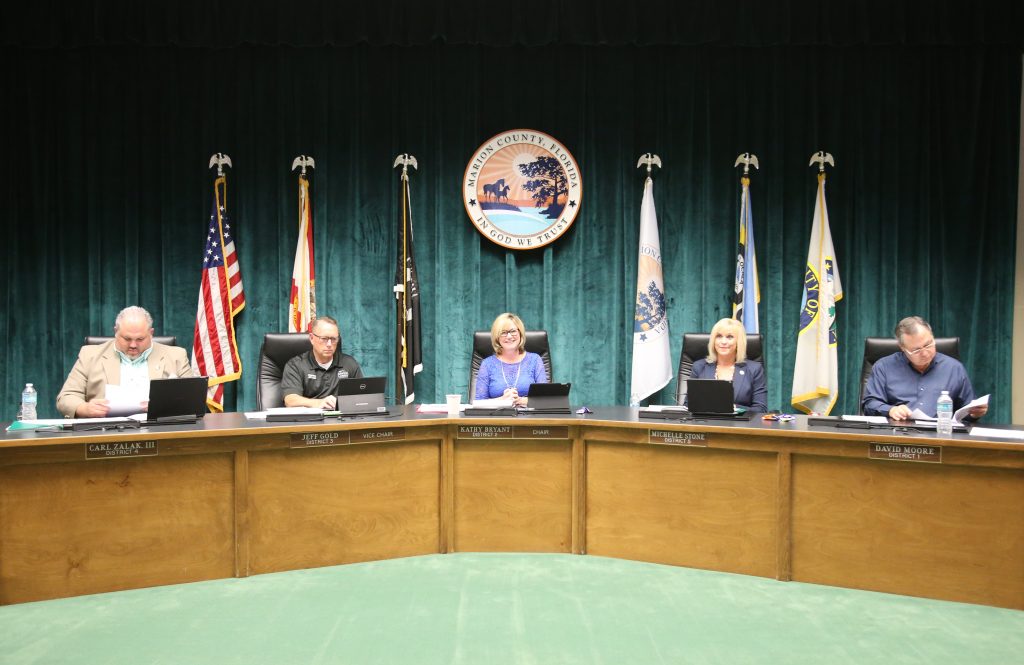County Commission seeks to empower homeowners with revised building code

The Marion County Commission is mulling changes to the local building code that could streamline the administrative burden on homeowners and contractors, while at the same time imposing limits on how much work can be done and who does it.
On one hand, commissioners are weighing expanding the list of projects at single-family homes that are exempt from county permitting requirements. And with the exemption, the project also would not have to be inspected once completed.
On the other hand, the board may cap the dollar amount of such work that can be done in a year at half the level allowed by the Florida Building Code, which guides construction in Marion County. Moreover, homeowners must affirm in writing that they will hire only licensed contractors, which would limit options on whom they can hire.
The local building industry gave mixed reviews of the changes.
Contractors applauded the efforts to reduce paperwork and tighten restrictions on unlicensed work.
But they maintained that the proposed yearly dollar ceiling was too low.
The board directed staff to review the in light of the objections. Commissioners will reconsider the revisions for final approval on Tuesday.
At a recent commission session, county Building Safety Director Mike Savage said installation of water heaters were a key reason for the proposed code amendments.
Savage noted that a survey earlier this year of his department’s inspections of new water heaters revealed two out of every three failed – the fixing of which ate up time for homeowners, contractors and inspectors.
Seeking to improve that process, he said, the agency explored permit exemptions for “like-for-like” swaps of electric water heaters.
Consequently, the department hashed out a list of other projects that could be done without permits.
The proposed change would grow the number of allowable exemptions from 11, as currently found in the state building code, to 36, including new administrative bypasses for electrical work, according to Savage.
- Besides water heaters, for instance, the code would excuse permits for:
- Replacing doors so long as the frame remains the same
- Replacing kitchen cabinets as long as the switch is exact and does not reconfigure existing electrical or plumbing work
- Fixing up to 100 square feet of roof
- Rescreening of existing screen room, lanai or swimming pool “cage”
- Installing or replacing a thermostat
- Repairing or replacing d existing plumbing fixtures and appliances, including dishwashers, faucets and sinks
- Repairing or replacing electrical fixtures such as light switches, ceiling fans or outlets.
The trade-off for a lighter regulatory load is that the dollar amount of work is capped.
Although the state building regulations allow homeowners up to $5,000 in annual improvements, the proposed ordinance sets a ceiling of $2,500.
Assistant County Attorney Dana Olesky said that was based on an informal survey of the maximum allowed by other communities. Additionally, homeowners whose projects exceed that threshold in a year would be required to obtain a permit, she said.
Another provision would mandate homeowners to certify that they hire licensed contractors.
Savage said even though a permit or inspection would not be necessary that requirement ensures the work is done safely.
He added that, even with an exemption, homeowners may request an inspection.
During the public comment period, Salt Springs resident Jack Stackman, a regular at commission meetings, noted the building code grants rights to homeowners, and that more consideration needed to be given to do-it-yourselfers.
State Rep. Stan McClain, the executive officer of the Marion County Building Industry Association, told the board that, based on his experience in Tallahassee, he was confident that the $5,000 ceiling had been thoroughly vetted, including by insurers. McClain also raised issues of how the forms should be submitted, such as whether doing so electronically was doable, which seemed contrary to the intent of the changes.
Ultimately, commissioners leaned toward incorporating some of the critics’ recommendations.
“I think that we’ve definitely got some work to do as far as the ordinance we have before us,” said commission Chairwoman Kathy Bryant. “I think it’s more contractor-driven, where it needs to be more homeowner-driven.”





